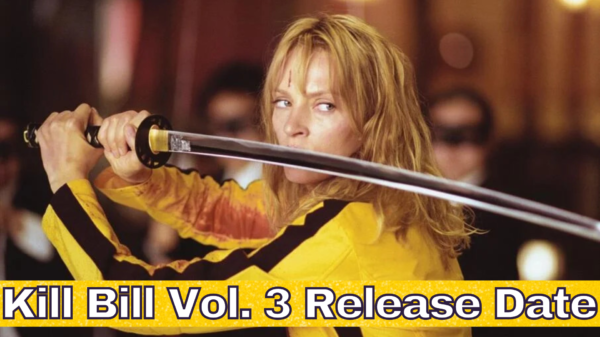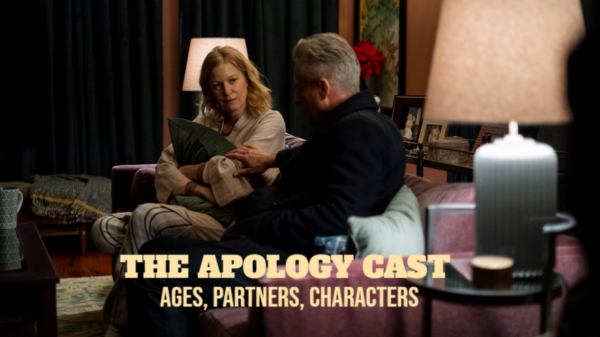The steamer has decided not to renew Resident Evil, but why Netflix Resident Evil was canceled? It is an action horror series based on the iconic video game genre, and the announcement, which comes a month and a half after the series’ July 14 premiere, is not wholly shocking. This was given that the drama did not fare well in Netflix’s Top 10, and cost vs viewership is the streamer’s primary renewal criterion, so we actually have a good guess for Netflix Resident Evil’s cancelation.
Resident Evil started at no 2 with an acceptable 72.7 million hours seen during its first weekend. The show was largely in the shadow of major genre success Stranger Things, which was released around the same time, but what could be the real reason behind Netflix Resident Evil’s cancelation?
The show did not offer the large Week 2 spike that one would expect for a new series as word of mouth spreads, and the show was raking in 73.3M hours seen in its 2nd week for a No 3 finish. This was before plummeting precipitously and falling out of the Top 10 after only 3 weeks.

Albert Wesker
Also Read: Netflix Resident Evil Season 2 Release Date, Trailer – Is It Canceled?
On Rotten Tomatoes, the latest Resident Evil iteration received a dismal 55% from reviewers, showing the displeasure of the viewers. Resident Evil’s ensemble was recruited by Netflix, and the intention is to collaborate with them again in the future but is it really the case now? The streaming service is already doing so with one of the performers, Paola Nez, who features in Netflix’s forthcoming series Fall of the House of Usher, but it is not certain for Netflix Resident Evil’s cast.
Why Did Netflix Canceled Resident Evil?

Jade Wesker
According to Deadline, Netflix’s Resident Evil series has been canceled just over a month after its launch due to low ratings and viewership. The streamer apparently opted not to continue Netflix Resident Evil, which is sad news for the fans of the show.
Netflix’s live-action series, like many other Resident Evil adaptations, seeks to put a new spin on the video game genre, which was directed by Andrew Dabb of Supernatural. The show alternates between two universes, focusing on Umbrella CEO Albert Wesker and his two children. The show is now weighed down by a predictable storyline that ultimately suffers from being such a late entry in the modern-day zombie mania, even though it was well-received at first.
Netflix Resident Evil made to the top 10 list of most-watched shows the week it aired and the two weeks after, but then dropped off the radar, and in addition to the live-action adaption, Netflix just published the animated 4-part series Resident Evil: Infinite Darkness given the series’ initial popularity.
The series, which focuses largely on the mythos of the Resident Evil franchise, has received mixed reviews, and even though Netflix’s live-action Resident Evil wasn’t quite the smash hit it hoped for, the streaming service will probably continue to produce many more video-game-based series.
What is Netflix Resident Evil based on?

Evelyn Marcus
Netflix Resident Evil has been adapted in a variety of ways, from comic books and novels to Paul Anderson’s film series, and following how all of these connect to the wider series is difficult, especially with Netflix’s new Resident Evil program. Fans will certainly notice a slew of allusions crammed into the Netflix program, but given that it is a live-action adaptation, many will be asking if it is connected to the Anderson film series, however, that is not the case.
The simple answer is that Netflix’s Resident Evil has no connection to the Anderson films, despite the fact that they share aspects, themes, and characters: Anderson’s films, in essence, take place in an alternate reality that includes many of the characters and settings from the games, so this is why the first 3 films feature locations such as Raccoon City, the Mansion, and the Hive.
The game series’ principles are utilized as a springboard to build a totally new tale centered on the new character Alice, so Alice does not exist in the universe of Resident Evil.
Resident Evil Season 1 Recap

Billie Wesker
The live-action Resident Evil series on Netflix tells a narrative in three timelines: one in present-day 2022, three months before the end, and another in 2036, 14 years after the end, and for all intents and purposes, the 2022 timeline is the major plot since it seems the most fleshed out and occupies a little longer of the duration.
The 2036 timeline, on the other hand, is more action-packed and terrifying, with hordes of mutant animals and zombies roaming wild: for the time being, all you need to know is that Albert is a top executive at Umbrella Corporation and reports to Evelyn Marcus. Things don’t get strange until Albert obtains their blood samples and then injects himself with them.
Also Read: How To Watch Resident Evil Movies And TV Shows In Order? The Ultimate Resident Evil Guide!











































